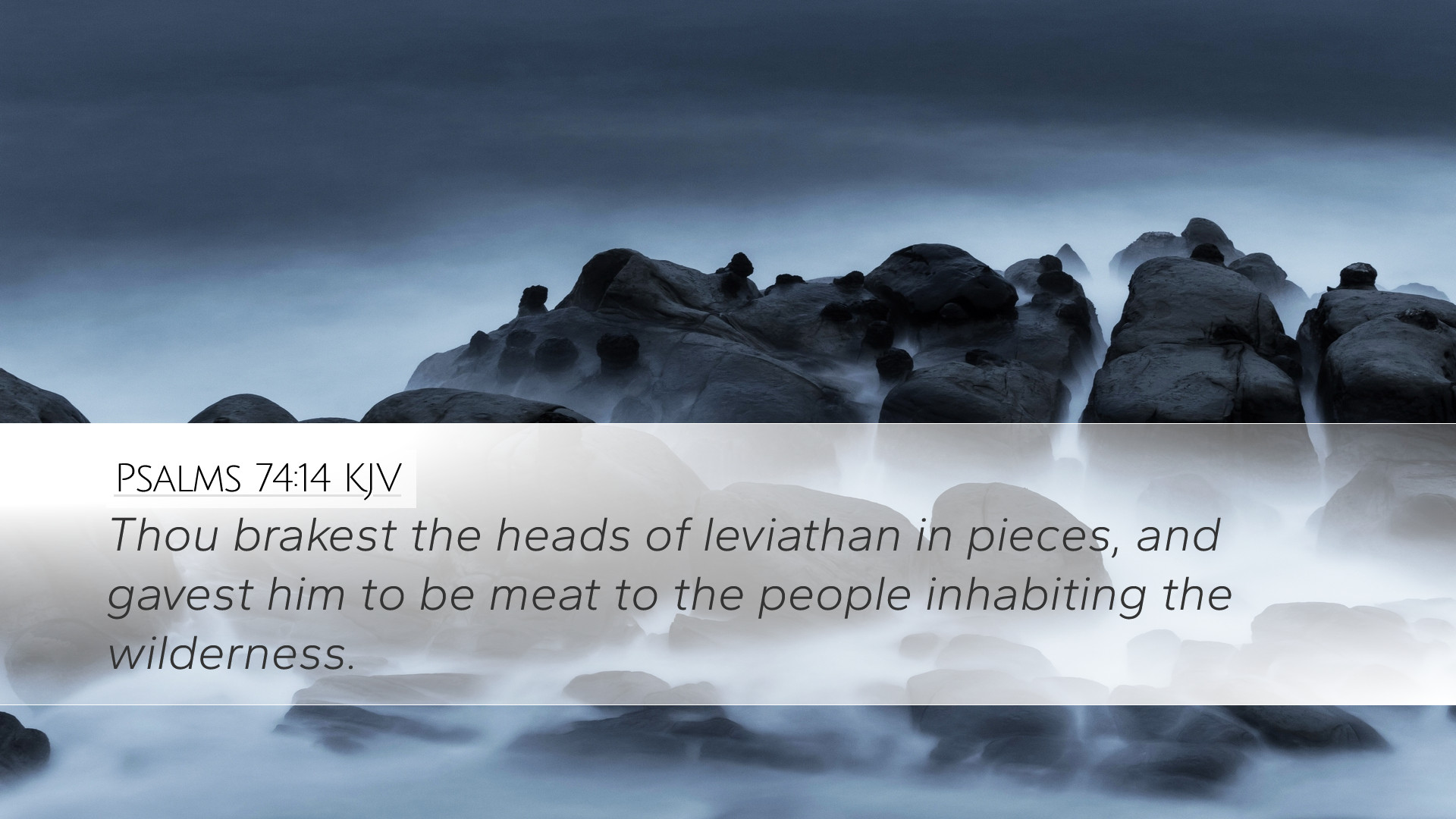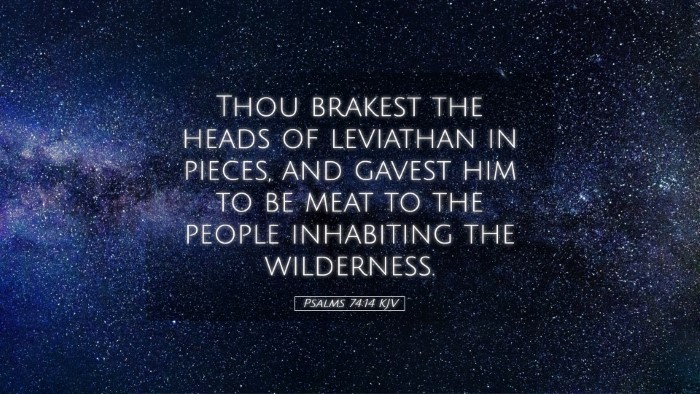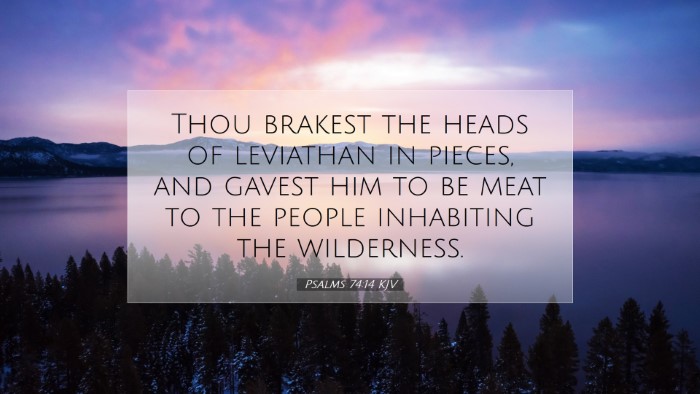Commentary on Psalms 74:14
Psalms 74:14 states: "Thou brakest the heads of leviathan in pieces, and gavest him to be meat to the people inhabiting the wilderness." This verse, part of a lamentation attributed to Asaph, encapsulates a vivid interplay of divine power and deliverance, reflecting on God's sovereignty over chaos and adversity.
Context and Setting
This Psalm is set against the backdrop of the destruction of the temple and the oppression faced by the Israelites. Asaph's lament in this chapter reveals deep anguish over the perceived abandonment by God amidst suffering and desolation. The mention of Leviathan serves as a metaphor for chaos and opposition, reflecting ancient Near Eastern mythology where Leviathan represented fierce powers against God’s people.
Exegesis of Leviathan
The term Leviathan, as understood from the Hebrew, refers not only to a physical creature but also symbolizes a chaotic force. Matthew Henry remarks that the 'heads' of Leviathan signify the diverse formidable powers that stand against God’s purpose. This creature is often seen as a personification of evil or opposition that the faithful must grapple with.
Albert Barnes expands this idea, suggesting that Leviathan represents nations or tyrants opposing Israel. In ancient cultures, Leviathan was often perceived as an embodiment of chaos, making God's victory over it a pivotal moment. Breaking its heads signifies a thorough defeat and dismantling of its authority, which highlights God's sovereignty as a creator and dominator of all forces, even those deemed formidable.
Theological Implications
This verse serves to remind believers of God’s omnipotence. Adam Clarke notes that the imagery of Leviathan's defeat underscores the belief that God has the capacity to triumph over evil. The act of breaking the heads signifies not a mere skirmish but a definitive and complete victory, establishing a narrative of hope amidst despair. It instills confidence in God's ability to deliver His people even in the bleakest of circumstances.
Symbolism of the Wilderness
The subsequent reference to providing the flesh of Leviathan as meat to the people inhabiting the wilderness is rich with symbolic meaning. It echoes themes of sustenance and survival amidst hardship. Henry interprets this as God provisioning His people with resources pulled from the defeated enemies. The wilderness setting evokes the Israelites' historical journey of dependence on God, further emphasizing that even the remnants of what once opposed them can become nourishment in God's hands.
The Character of God in Rescue
This passage emphasizes the character of God as both a warrior and provider. It reflects a dual aspect of His nature: that of fighting against adversarial forces on behalf of His people and ensuring their survival. The tension within the Psalm—a struggle between despair and the remembrance of God’s past deliverances—invites believers to hold onto hope and trust in divine intervention.
Lessons for Contemporary Faith
The enduring lesson from Psalms 74:14 can be invaluable for contemporary faith communities. Pastors, students, and scholars might take note of the powerful imagery that communicates God’s ability to turn chaos into provision. Here are some key takeaways:
- God's Sovereignty: The text invites readers to reflect on the omnipotent nature of God, encouraging them to trust that no opposition can thwart His will.
- Redemptive Power: The transformation of chaos (Leviathan) into sustenance illustrates how God can bring about life from destruction and despair.
- Faith in Adversity: Asaph’s lament reminds believers to be honest about their pain while simultaneously recalling God's past acts of deliverance.
- Provision in Wilderness: The wilderness symbolizes trials, yet God's provision within this context affirms His continuous care for His people.
Conclusion
Psalms 74:14 challenges readers to reconcile their fears and uncertainties with a faith that takes root in the recognition of God's past victories. As God defeated Leviathan, so can He conquer modern adversities. The imagery deeply resounds through ages, encouraging believers to remain steadfast in the face of challenges, trusting in the God who provides and sustains.


